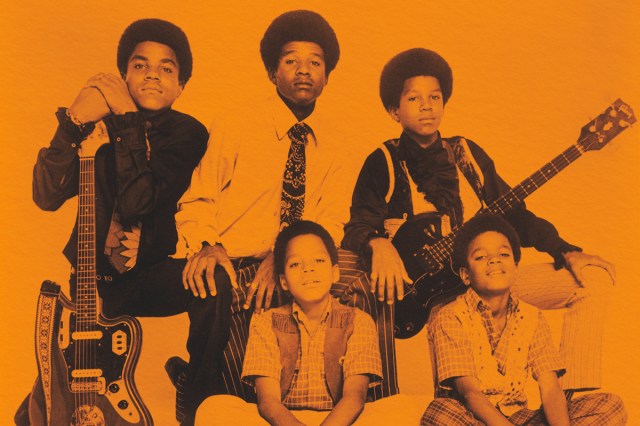
Halloween entertainment is brimming with images of warty witches and bubbling cauldrons (we love the Sanderson sisters in Hocus Pocus), and ghosts both friendly and not haunt our dreams and our screens throughout spooky season. (Uttering the name of a certain green-haired ghost — Beetlejuice, Beetlejuice… Beetlejuice! — might send chills down your spine.) But otherworldly beings began captivating audiences long before blockbuster films offered thrills and chills. Let’s go back to a time when a certain English playwright was transforming ghoulish stereotypes onstage. Over 400 years ago, Shakespeare unwittingly crafted several Halloween traditions that still haunt us today.
You might be able to chant this eerie couplet from memory without realizing it came from the Bard. It appeared in Macbeth Act IV, the “Song of the Witches.” In addition to providing these spooky lines, this section contributes much to our modern interpretation of witches.
Macbeth’s titular character receives a shocking prophecy from three witches: He will become king of Scotland. The 17th-century play was published around the height of Scotland’s devastating witch trials, so it makes sense that Macbeth’s downfall was initiated by a chance encounter with three “Weyward Sisters.” Many editions call them “Weird Sisters,” but the meaning of “weird” is not as we use it today as a synonym for “odd” or “quirky.” Instead, “weird” is a synonym for “supernatural” or “otherworldly.”
Shakespeare transformed the imagery of witches through their depiction in Macbeth. The witch trials (in Scotland and in the colonies) stoked fears that witches were hiding as everyday women, casting spells in the midst of the community. The Weird Sisters are humanlike, but their physical appearance is chilling and sinister, with deep wrinkles of the “chappy finger.” The “Song of the Witches” passage also introduced the imagery of a bubbling caldron, to which the sisters add “Eye of newt and toe of frog, / Wool of bat and tongue of dog, / Adder’s fork and blind-worm’s sting, / Lizard’s leg and howlet’s wing…” Believed by some to be a real spell, these verses left a lasting impact on the perception of how witches cast spells and the unsavory objects they use to do so.
Shakespeare’s witchy imagery is far-reaching. Consider: “By the pricking of my thumbs / Something wicked this way comes…” Said by the second witch in Macbeth, this famous phrase refers to the old-fashioned superstition of tucking the thumb into the palm to protect against supernatural entities. Like so many Shakespearean lines, it has become a stand-alone expression. Author Ray Bradbury borrowed part of it for the title of his 1962 dark fantasy novel, Something Wicked This Way Comes.
Owls were a symbol of wisdom and prophecy in ancient Greece, but their benign reputations darkened in Renaissance England. The association with prophecy took on sinister undertones, and according to the Bard of Avon, these birds of prey are nefarious.
Owls (or “howlets” as they are called in the “Song of the Witches”) are harbingers of bad luck in many of Shakespeare’s works. The owl plays a vital role as an evil omen in Macbeth: “It was the owl that shrieked, the fatal bellman, / Which gives the stern’st good-night. He is about it.” The “fatal bellman” is a reference to the custom of a “passing bell” to ring when someone in town was close to death.
Similarly, in Act IV of Richard III, when the titular character receives bad news on the battlefield, he exclaims, “Out on you, owls! Nothing but songs of death.” Thus, owls’ close association with death was firmly established.
Shakespeare pushed the ghostly envelope and changed the way people imagine spirit apparitions. In pre-Elizabethan literature, ghosts were typically described as orbs of light without a discernible shape — and certainly no human characteristics. Shakespeare’s ghosts were markedly different. For the first time, spirits were purported to appear much like their previous human forms.
Characters such as Brutus, Macbeth, Hamlet, and Richard III are plagued by these familiar spirits. Imagery of ghosts lurking about a graveyard in A Midsummer Night’s Dream or shrieking through the streets in Julius Caesar created new ideas of what ghosts ought to be. In Julius Caesar, the famous Roman general’s ghost appears in his likeness, immediately recognizable to startled characters. “The ghost of Caesar hath appeared to me / Two several times by night — at Sardis once…”
Perhaps the most influential Shakespearean ghost is Hamlet’s father, who directs Hamlet to avenge his murder by killing his uncle, Claudius. The ghost reveals himself to his son in Act I of Hamlet:
Had Hamlet’s father appeared as an orb of light and not a king suited in armor, would it have had such a profound impact on audiences — or the plot? Likely not. Shakespeare crafted his supernatural characters so compellingly that over 400 years later, we still imagine them in much the same way he did.



























